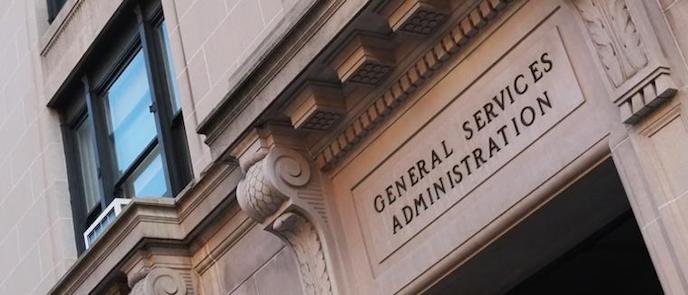The GSA Advantage Online marketplace was designed to facilitate government purchasing activity and provide a service that is aimed at improving the acquisition while minimizing waste of resources. In 2021, Robin Carnahan was appointed by Joe Biden to GSA Administrator position replacing Emily Murphy, and with that GSA started implementing some major system improvement projects.
One of such important changes is the “Order Status Update” initiative intended to improve communication between GSA Contractors and Buyers on transactional level of orders and items purchased. The goal is to notify the customer of the status of their orders placed on the 2 GSA platforms: GSA Advantage and GSA Global Supply.
Every Contractor who has any GSA orders now receives an email titled “Take Advantage of Order Status” or “No Order Left Behind Initiative” for orders from GSA PO PORTAL or GSA Global Supply Vendor Portal OMS (managed by IBM) every 2 weeks, reminding vendors to provide accurate status of orders in the report attached. The vendors then must login into the respective GSA system and provide tracking numbers, cancellation notices or back-orders notifications for each item in every order.
Most contractors historically ignored these status update requirements, however this time it may be different because GSA is taking a stronger position and even has warned in their emails that contractor’s online visibility may be affected or all together removed from GSA if the reporting is not improved. This has been happening even to vendors with automation software and process, the supply chain disruptions had affected virtually everyone, causing vendors not able to comply with previously promised delivery terms, having to request revisions to their GSA contract delivery terms such as “Freight On Board” (FOB), “Days After Receiving Order” (Days ARO), or other contract conditions.
The mandatory process of providing status updates for GSA Orders can be done with EDI automation software like Price Reporter’s “Quick Sales Order Management System” (QS EDI OMS) or manually via GSA provided websites (see below) (https://www.poportal.gsa.gov/ and https://www.orders-vp.fas.gsa.gov/).
Most of Price Reporter’s clients currently utilize our inhouse developed cloud-based solution for managing government orders called Quick Sales or QS EDI OMS,which enables the automatic order status update whenever an item is shipped by partner passing tracking info to GSA, as soon as the label gets printed, removing the human element out of the process.
Further, the software provides visibility to clients to review orders which are not shipped so they can process it by offering a substitution replacement, backorder or a cancellation option.
While utilizing EDI (Electronic Data Interchange) sound difficult, Price Reporter’s QS EDI OMS makes the process seamless to the user, utilizing a direct and secure connection between GSA and Price Reporter, and providing a comfortable interface for GSA vendors to use.
A manual process is difficult and unmanageable especially for vendors with high order volume, and as a result most GSA Contractors ignore this requirement and don’t provide accurate order status to GSA – potentially causing GSA FAR compliance violation.
The manual process requires each vendor to login to each of the GSA systems (GSA POPORTAL and “GSA Vendor Portal OMS – IBM’s GSA Schedules”, using their 2 Factor Authentication systems, and then manually enter the tracking info for each item in each order (or cancellations), which can be forgotten, overlooked or dismissed as nonimportant.
It’s obviously much more cost efficient and less risky to have a plan in advance to follow government regulations, rather than to later have to address issues of non-compliance.
Having a low score of order status notifications, may also cause delays with modifications review and approvals, as the GSA Contracting Officer (CO) may request that before any modifications can be reviewed, all orders must be brought up to date, and the vendor must develop a plan to improve the deficiency and explain how it will be managed on ongoing basis.
Price Reporter’s QS EDI OMS is a turn-key solution which was specifically designed to address all of these issues before they occur, and Price Reporter is committed to helping vendors follow government requirement.
As an expert consulting firm, Price Reporter also assists our clients to keep a healthy order score, and avoid suspension risk.
Price Reporter helps clients respond to potential suspension notices, and work with GSA representatives on the specifics of each potential violation. We also help our clients prepare an action plan to address all current and future issues preventing contractors from having a positive order status report.
For example, Price Reporter provides written resources and instructions for current QS EDI OMS Users – here are a few articles we recently published to help our current with GSA order status updates and performance score related to this subject:
- “How to maintain high performance score via GSA EDI status updates“
- “How Auto-Backorder can help you comply with GSA requirements“
(Please see both articles below)
To learn more about the QuickSales (QS EDI OMS) Please contact Price Reporter’s Sales Team by calling 1-201-567-6646 or writing @ Sales@PriceReporter.com.









It’s important to review your contract terms regularly to ensure that they remain compliant with GSA guidelines. The frequency of the review will depend on the specific terms of your contract, the complexity of the project, and the requirements of the government agency you are working with.
As a general rule, you should review your contract terms at least annually to ensure that they remain up-to-date and compliant with any changes in GSA regulations or guidelines. You should also review your contract terms any time there is a significant change in the project scope, budget, or timeline, or if there are any changes in the personnel working on the project.
In addition to regular contract reviews, you should also stay up-to-date with any changes in GSA regulations or guidelines that may impact your contract. This may include attending training sessions, reviewing updates from the GSA and other government agencies, and consulting with legal or compliance experts.
By regularly reviewing your contract terms and staying up-to-date with GSA regulations and guidelines, you can help to ensure that your contract remains compliant and avoid any potential compliance violations that could lead to contract suspension or other penalties.
How often should I review my contract terms to ensure they remain compliant with GSA guidelines?
Contract suspension can have serious consequences to your business operations, as it can disrupt your cash flow, damage your reputation, and potentially lead to the loss of future business opportunities. Here are some of the potential consequences of contract suspension:
Financial Losses: Contract suspension can result in significant financial losses for your business, as you may not be able to bill for any work performed during the suspension period. This can impact your cash flow and potentially lead to a loss of revenue.
Reputational Damage: Contract suspension can damage your business reputation, as it may signal to potential clients that you are not able to fulfill your contractual obligations. This can impact your ability to secure future contracts and may lead to a loss of business opportunities.
Legal and Regulatory Consequences: Contract suspension can result in legal and regulatory consequences, as it may trigger investigations into your business practices and potential violations of government regulations. This can lead to fines, penalties, and other legal consequences.
Loss of Key Personnel: Contract suspension may lead to the loss of key personnel, as they may seek employment elsewhere, being unable to work on the suspended contract. This can impact your ability to deliver on other contracts and may lead to a loss of productivity, resulting in lost revenue.
To minimize the impact of contract suspension on your business operations, it’s important to have a contingency plan in place. This may include identifying alternative sources of revenue, communicating with your stakeholders about the suspension, and working with the government agency to resolve any compliance issues. By taking proactive steps to address the consequences of contract suspension, you can help to protect your business and mitigate the potential impact on your operations.
What are the consequences of contract suspension, and how can they impact my business operations?
To ensure that your subcontractors or teaming partners are compliant with GSA regulations, you should take the following steps:
Conduct Due Diligence: Before you enter into a subcontracting or teaming agreement with any third party, you should conduct your due diligence on the company. This includes verifying their business credentials, conducting a background check, and reviewing their past performance on similar contracts. You can also use the System for Award Management (SAM) website to check if they are registered and have any past performance issues or exclusions.
Include Compliance Requirements in Your Contract: When drafting your subcontracting or teaming agreement, make sure that you include language requiring compliance with GSA regulations. This may include provisions such as requiring your subcontractors or teaming partners to provide regular reports on their compliance status, requiring them to notify you of any potential compliance issues, and requiring them to indemnify you in the event of any compliance violations.
Provide Compliance Training: You should provide compliance training to your subcontractors or teaming partners to ensure that they understand their obligations under GSA regulations. This can include training on topics such as ethical conduct, procurement integrity, and conflict of interest.
Monitor Compliance: You should monitor your subcontractors or teaming partners for compliance with GSA regulations. This may include conducting regular audits, reviewing their performance reports, and conducting site visits. If you identify any compliance issues, you should take immediate action to address them and notify the appropriate GSA officials.
By taking these steps, you can help to ensure that your subcontractors or teaming partners are compliant with GSA regulations and reduce the risk of compliance violations that could lead to contract suspension or other penalties.
How can I ensure that my subcontractors or teaming partners are also compliant with GSA regulations?
There are several warning signs that your contract may be at risk of suspension, and it’s important to be proactive in addressing them before they become a problem. Here are some potential warning signs to look out for:
Missed Deadlines: If you are consistently missing project deadlines or are failing to deliver on your contractual obligations, your client may start to lose confidence in your ability to fulfill the terms of the contract.
Poor Communication: Communication is a huge detriment to any business relationship, and if you are not responding to emails or calls promptly, or are failing to keep your client informed about project progress, it could be a red flag.
Quality Issues: If the quality of your work is consistently below the expected standards or if there are frequent errors or mistakes, it could be an indication that you are not meeting the requirements of the contract.
Budget Overruns: If you are consistently exceeding the agreed-upon budget for the project, it may be a sign that you are not managing your resources effectively.
To address these warning signs, it’s important to communicate proactively with your client and address any concerns they may have. Be transparent about any challenges you are facing and work collaboratively to find solutions. You may also need to adjust your approach or processes, to ensure that you are meeting the requirements of the contract.
It’s also a good idea to review your contract regularly and make sure that you are meeting all of the terms and conditions. If you identify any areas where you may be falling short, take steps to address them as soon as possible. By being proactive and taking action to address potential warning signs, you can help to prevent contract suspension and maintain a positive business relationship with your client.
What are some potential warning signs that my contract may be at risk of suspension, and how can I address them before they become a problem?